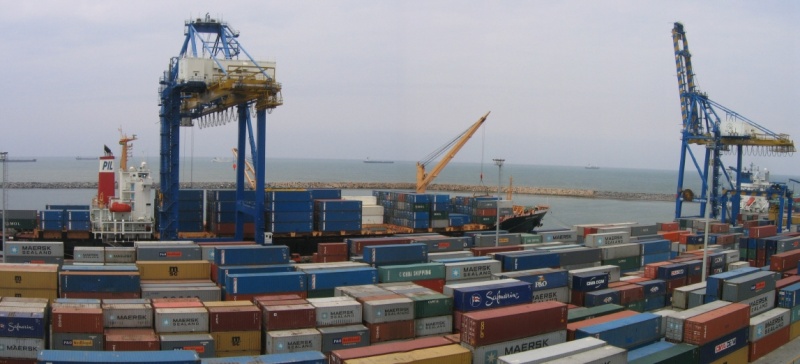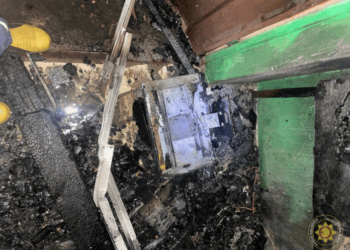
Shipping lines operating in the country have served notice that they will not load cargoes which do not come with the Cargo Tracking Note (CTN) at the various ports of loading effective Monday, August 27.
This, they contend, is to avoid being slapped with fines by the Ghana Revenue Authority (GRA), despite identifiable hitches with implementation on the CTN policy.
Vice-President of the Ship Owners and Agents Association of Ghana (SOAAG), Adam Imoro Ayarna, told the B&FT in an interview: “As at now, the letter we have from the GRA is that from September 1, for any shipment that is shipped on board vessels without CTN, that shipping line will be fined.
“Already, freight margins are very low and our principals will not want to incur additional costs; unless we receive an official letter from the government that states contrary to what we have, we will not load goods without CTN on the instruction list.”
The GRA, in a notice to shipping lines dated June 29, 2018 and signed by the Commissioner-General, Emmanuel Kofi Nti, instructed them to ensure complete compliance with implementation of the CTN by not loading containers that are not covered by the document.
According to Mr. Ayarna, SOAAG is not happy with the fact that fines or penalties relating to non-compliance to the CTN are being targetted at its members – and not the shipper who is bringing in the items without the CTN.
He added: “Inasmuch as it will affect our business, we do not want to be penalised—at a cost we do not know yet; we would rather come with low cargo-no cargo and hope to make recovery for the loss elsewhere”.
The decision of shipping lines, should government allow it to fly, will come with dire consequences to the entire shipping value chain and the economy in general.
For instance, cargo traffic to the country will be drastically affected given that the majority of importers and exporters are not yet logged onto the CTN platform; while shipping lines will want to consolidate cargo to enable them meet their cut-off point before setting sail.
Mr. Ayarna indicated: “If we don’t get the required volume for vessels to leave the port of origin, the shipment could be postponed to allow for consolidation.
“Our cargo volumes are going to be negatively affected because bringing low volumes will lead to losses; some shipping lines might consolidate cargo or take the heat and come empty and make their recovery elsewhere.
“Aside from the negative impact on cargo traffic, there will be delays at the port of loading which will come at a cost to the consignee or shipper; ultimately, it will also affect port income and government revenue from the ports.”
According to Mr. Ayarna, based on feedback from its clients the CTN portal has some identifiable hitches which need to be addressed as well as some technicalities that must be clearly defined.
“We also get feedback that the web tool is slow; and there are cut-offs in and out. We see that people will have to necessarily process the original bills of laden, but we don’t know how or at what point in time the CTN reference number is generated because shipping lines will only issue bills of laden after the vessel has sailed,” he said.
He also queried: “We understand that the CTN portal does not have all the HS Codes in the system; for instance, is someone is shipping from somewhere and logs onto the CTN portal but could not find the code for that goods, what will that person do?
“What of switch-bill of laden: someone has shipped cargo and then wants to sell the cargo to somebody else at the time the vessel was at sea. The bill of laden has to be changed, but how do you amend the CTN document to reflect the changes?”
He told the B&FT: “Government will have to come clear on this situation; if you want to get volumes, then don’t saddle shipping lines with penalties or fines so we can bring in more cargo; you can sort that out with the shippers”.
The SOAAG boss pointed out clearly that shipping lines are not against the CTN per se – but there are a number of issues which have not been addressed due to lack of sustained education on the programme.
“Government appears too optimistic about the CTN, but there are clear problems that must be tackled before it being rolled out. If anything, we have GCNet and Westblue that can provide historical data on shipments,” he stressed.
Source : thebftonline.com

































